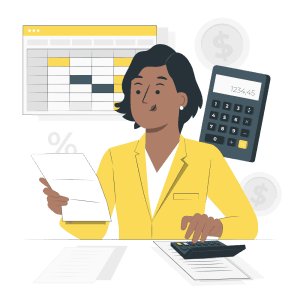HOW ACCOUNTABILITY DRIVES TRADING SUCCESS
Taking responsibility for your actions drives you toward trading success. This article explores how assuming accountability for one’s actions and decisions is vital in achieving trading success. By cultivating self-awareness, accepting losses as learning opportunities, and implementing disciplined strategies, traders can navigate the markets effectively and improve their outcomes.
 In the world of trading, taking responsibility is a fundamental trait that separates successful traders from the rest. In his book “Trading in the Zone,” Mark Douglas emphasizes the significance of assuming responsibility for one’s actions, decisions, and outcomes in the market.
In the world of trading, taking responsibility is a fundamental trait that separates successful traders from the rest. In his book “Trading in the Zone,” Mark Douglas emphasizes the significance of assuming responsibility for one’s actions, decisions, and outcomes in the market.
This article explores what accountability means for traders, providing a detailed understanding of why responsibility is crucial and offering actionable points to cultivate a responsible outlook.
Understanding the Role of Responsibility:
Taking responsibility in trading entails acknowledging that you are solely accountable for your results. It involves recognizing that external factors such as market conditions, economic news, or even broker mistakes do not determine your success.
Instead, success is shaped by your ability to manage your beliefs, emotions, and actions.
Examples of Lack of Responsibility:
Traders who fail to embrace responsibility often exhibit common patterns that hinder their progress.
For instance, they might blame the market for their losses, believing that it is somehow conspiring against them. They might shift the blame to brokers, claiming that their execution errors or platform issues caused their unsuccessful trades.
Such a mindset limits their growth as they overlook their own shortcomings and miss the opportunity to learn and improve.
Developing a Responsible Outlook:
Cultivate Self-Awareness:
The first step towards assuming responsibility is developing self-awareness. Reflect on your thoughts, emotions, and reactions during trades. Identify any patterns of behaviour that may hinder your decision-making process.
For example, are you prone to impulsive trades when experiencing losses or overly cautious when encountering profits? By becoming aware of these tendencies, you can start taking control of your actions.
Accepting Losses as Part of the Process:

Embrace the fact that losses are an inherent part of trading. Instead of viewing losses as failures, reframe them as valuable learning opportunities. Analyse your losing trades objectively to identify areas for improvement.
This shift in perspective allows you to take responsibility for your trading decisions and seek ways to enhance your strategies.
Establish a Trading Plan:
A well-defined trading plan is crucial for assuming responsibility. Outline your goals, risk tolerance, entry and exit strategies, and position sizing.
By following a plan consistently, you take responsibility for executing your trades based on predetermined rules rather than relying on impulsive or emotionally driven decisions.
Adaptability and Continuous Learning:
Responsibility entails adapting to changing market conditions and refining your strategies. Stay informed about the latest market trends, economic indicators, and trading techniques. Continuously educate yourself and be open to new ideas.
By taking responsibility for your learning journey, you equip yourself with the necessary tools to navigate various market scenarios.
Discipline and Risk Management:
Responsible traders exercise discipline in adhering to their trading plans and managing risks effectively. Set stop-loss orders and respect them, even if it means accepting losses. Avoid chasing after unrealistic gains or deviating from your risk management principles.
By assuming responsibility for your risk management practices, you protect your trading capital and maintain a long-term perspective.
Journaling and Performance Analysis:
Keep a trading journal to record your trades, strategies, and emotions. Regularly review and analyse your performance to identify patterns, strengths, and weaknesses.
This practice allows you to take responsibility for tracking your progress and making data-driven decisions. Adjust your strategies based on the insights gained from your journal, and continually strive for improvement.
Taking responsibility is a pivotal mindset for achieving success in trading. By assuming accountability for your actions, decisions, and outcomes, you empower yourself to navigate the markets effectively.
Learn from Mark Douglas’s teachings in “Trading in the Zone” and implement actionable steps to develop a responsible outlook. Cultivate self-awareness, accept losses as learning opportunities, establish a trading plan, adapt to changing market conditions, exercise discipline, and regularly analyse your trades.

